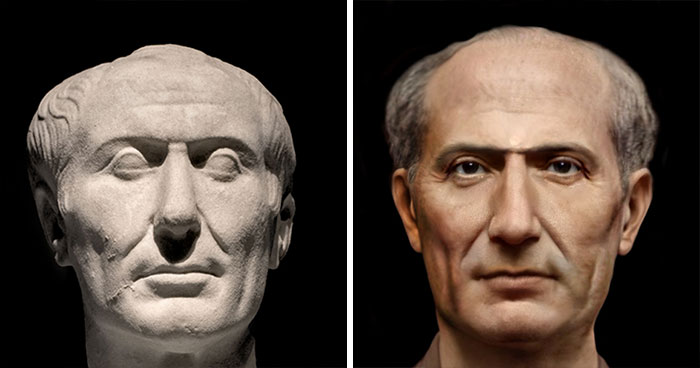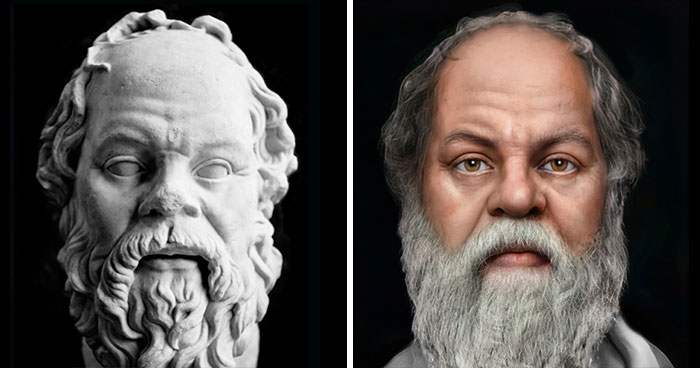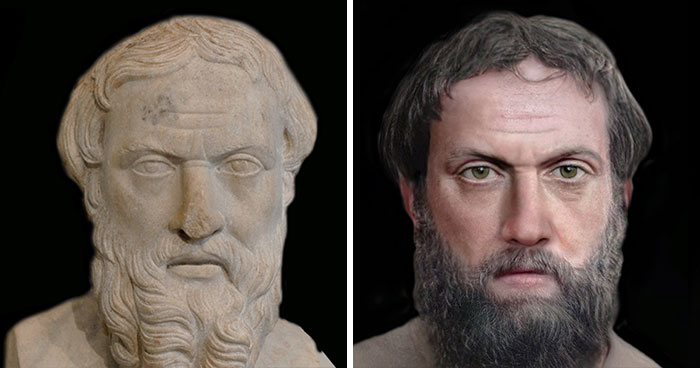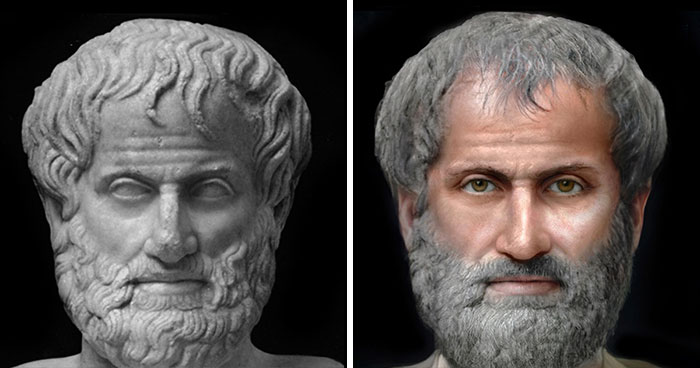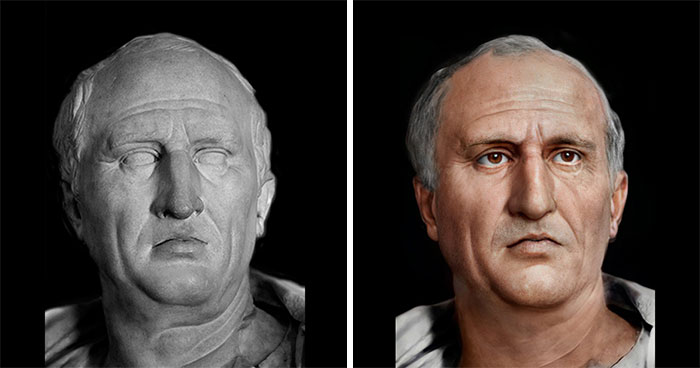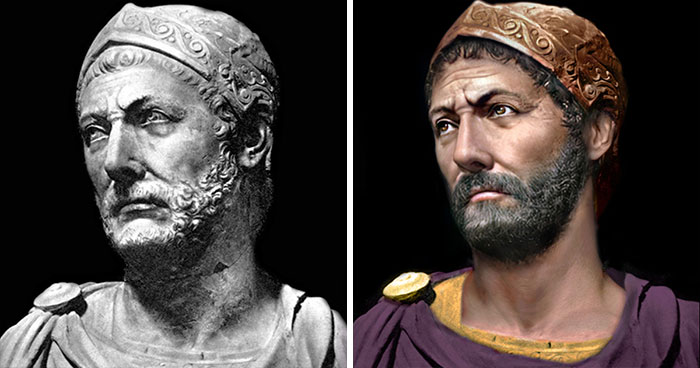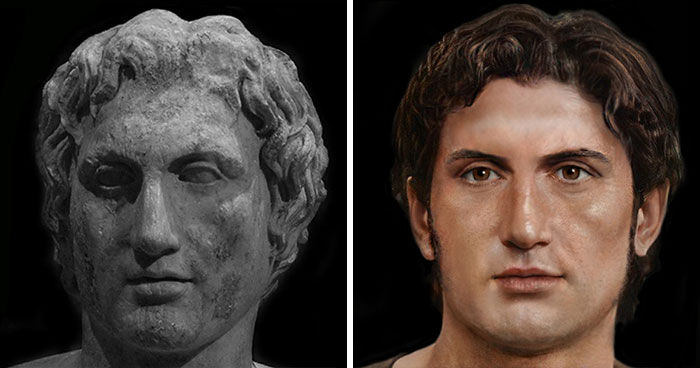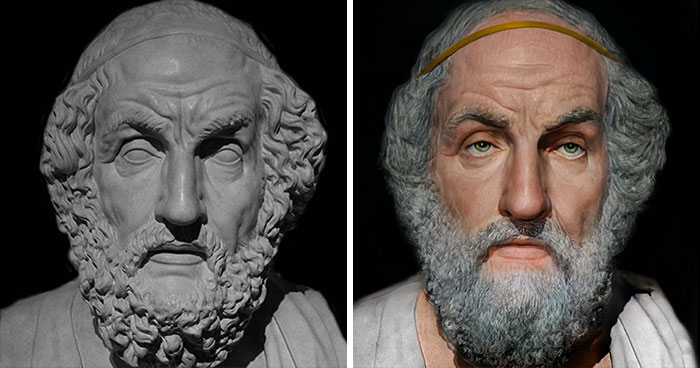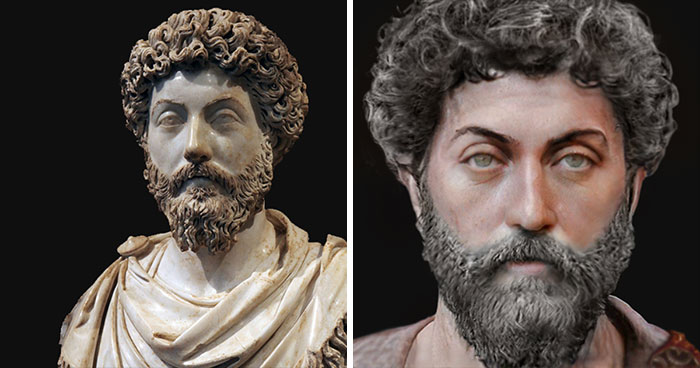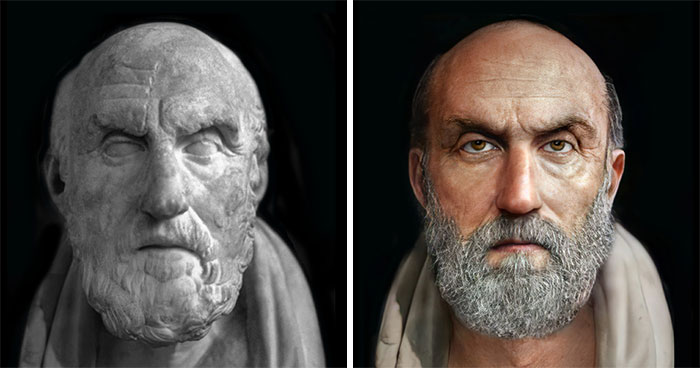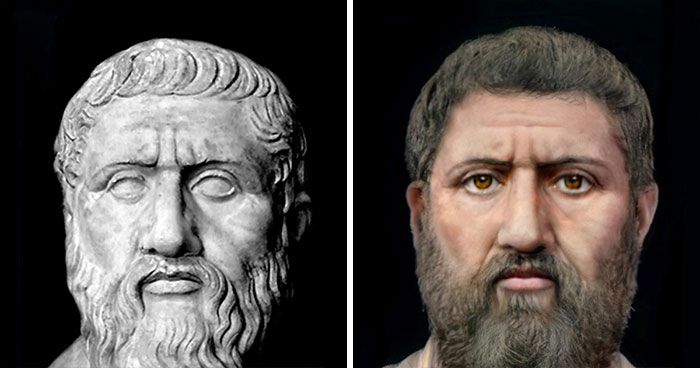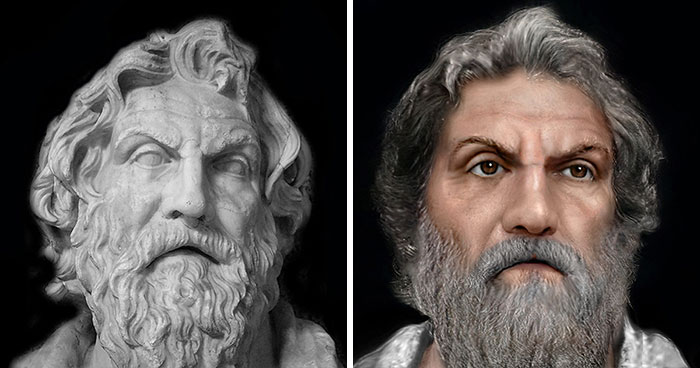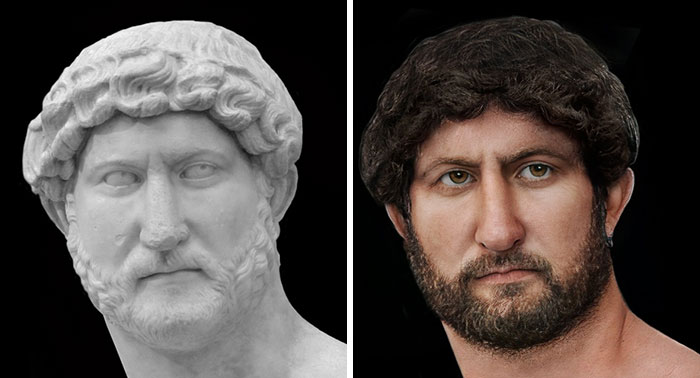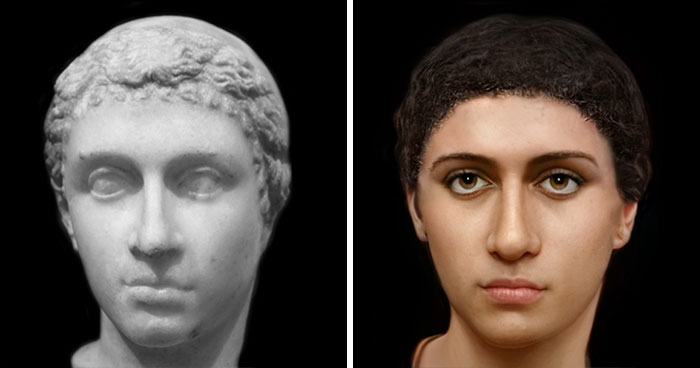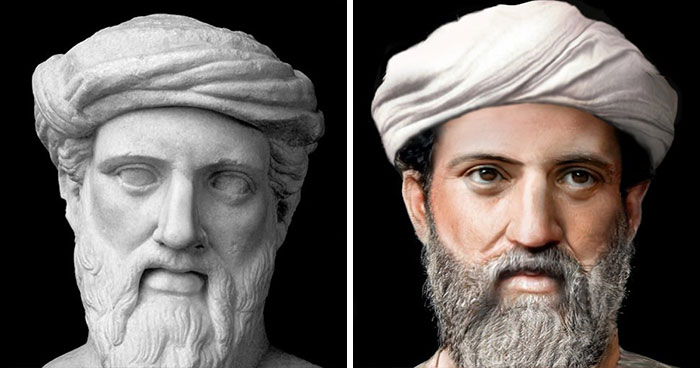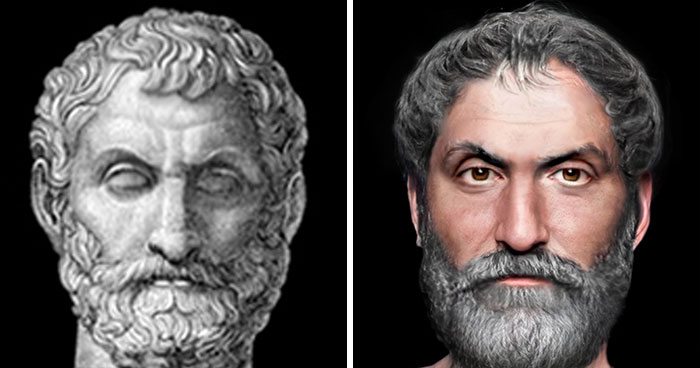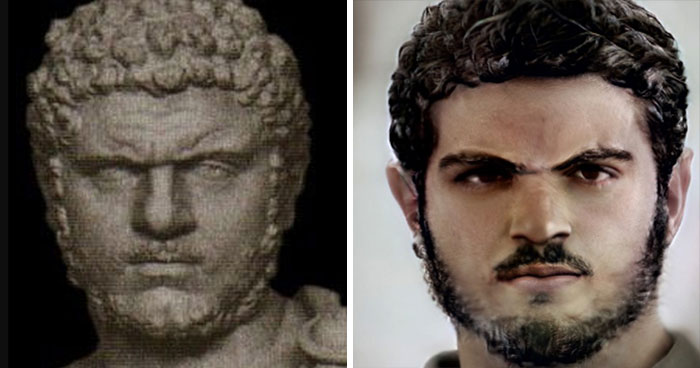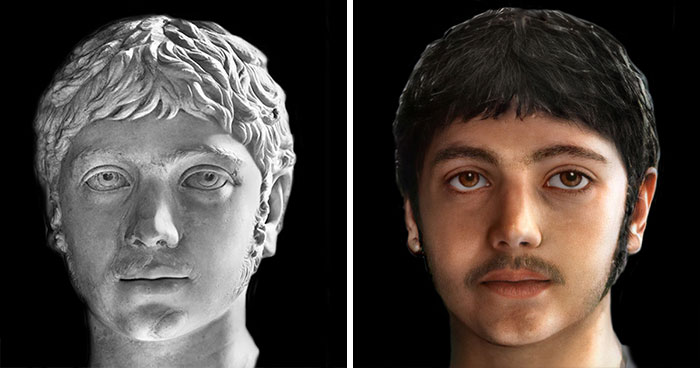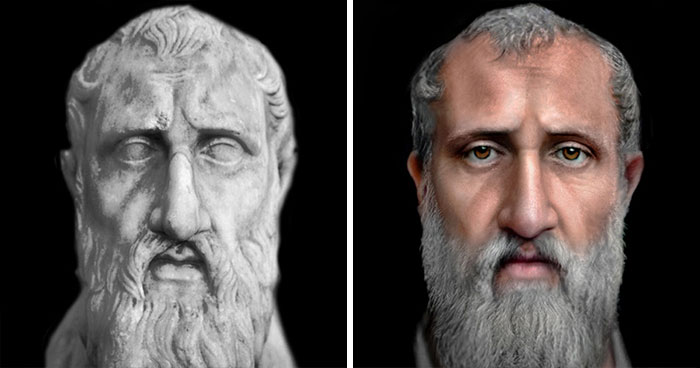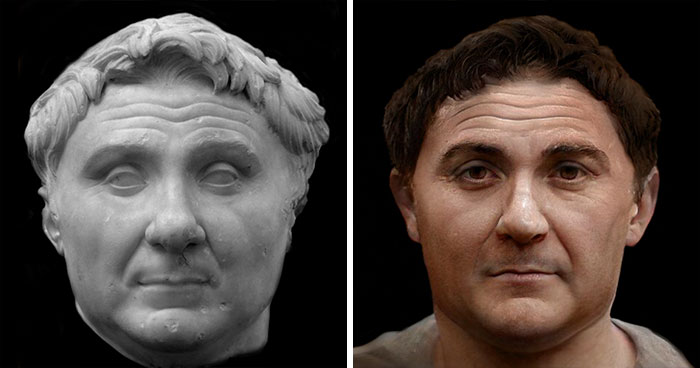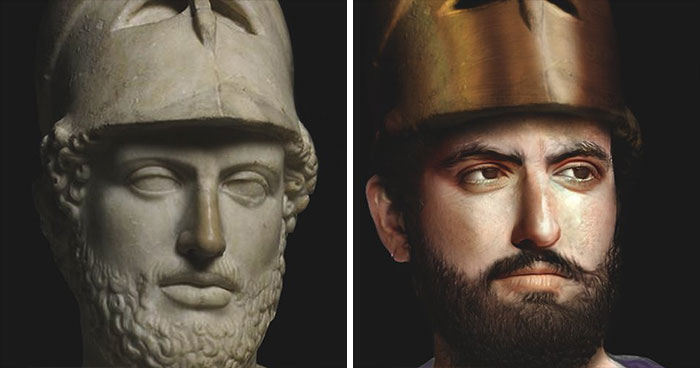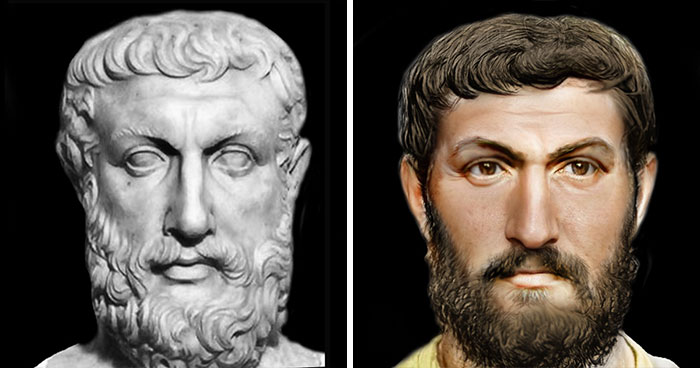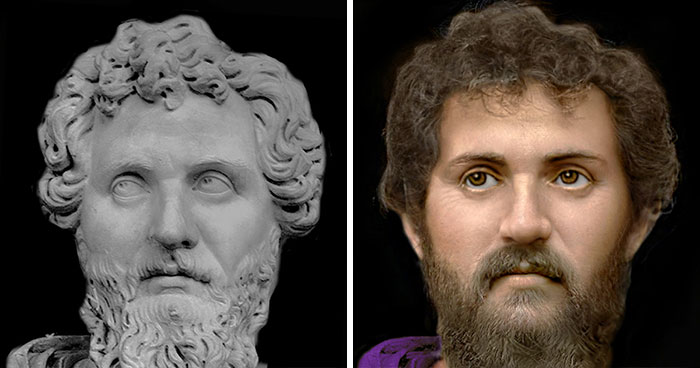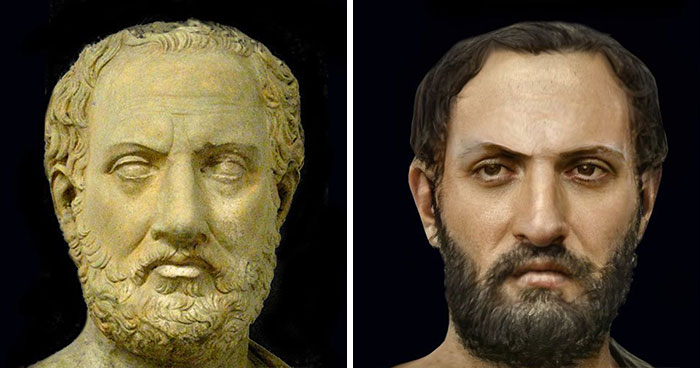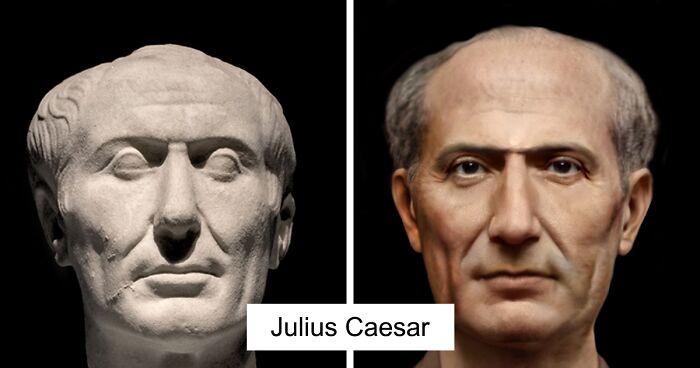
Guy Uses Modern Software To Restore The Faces Of Julius Caesar And 23 Other People From Ancient History
Interview With ArtistFor many of us, history used to be a bit of a boring topic in school. But, over the years, it has become clear that it wasn’t the topic itself, but the way it was presented—it just didn’t appeal to the younger audience.
Now, if someone was to show the 10-year-old me pictures of reconstructed faces of famous people from antiquity, which were restored using the miracle of modern technology, then I would have been much more interested in studying the past!
Speaking of which, Alessandro Tomasi is doing that exact thing—reconstructing the faces of famous people from ancient times, and so far, he’s done quite a few of them!
Bored Panda got in touch with Tomasi for an interview, which you can find below, along with a list of Tomasi’s realistic reconstructions. And hey, while you’re down there, why not vote and comment on the ones you like the most!
This post may include affiliate links.
Roman General And Statesman Julius Caesar
Julius Caesar. A confident, powerful man. Famously captured by pirates in his youth, who demanded thirty talents in gold for a ransom. Caesar knew he was worth more, so he demanded that they ask for fifty. He told them when he was free, he would hunt them down and kill them, and once released, raised a fleet and crucified each of the pirates. At a party a few months before his assassination, he was purportedly asked what manner of death he would want to die, responding, “An unexpected one.” Killed in a Senate meeting on the Ides of March, stabbed 23 times. His adopted son, Brutus, was among his murderers.
Greek Philosopher Socrates
Socrates mentioned once I know that I know nothing and ive been thinking a lot about that lately because do we really know anything at all ?
Greek Historian Herodotus
he wasn't just a historian, he was the first formal historian ever. he's also a dope supporting character in assassin's creed odyssey
So, Alessandro Tomasi is a 20-year-old Italian-Lebanese artist and student from Florence, Italy who has recently started reconstructing the faces of historical figures of the distant past.
By reconstructing, we mean that he has practically taken a bust of said historical figure and did some technical wizardry to make them look like real people.
He has so far done a number of historical personas, like Plato, Aristotle, Socrates, Homer, Cleopatra, Hannibal Barca, Emperor Elegabalus, Septimus Severus, Herodotus, and many others.
Greek Philosopher Aristotle
Roman Statesman Marcus Tullius Cicero
His last words, to a Roman soldier sent to kill him. “There is nothing proper about what you are doing, soldier, but at least try to kill me properly.”
Carthaginian General And Statesman Hannibal Barca
One of the most famous military tacticians of all time. Fought against Rome in the Punic Wars due to a pledge he allegedly made to his father that he would never be a friend of Rome. Led war elephants through the Alps to attack Rome, eventually defeated by Scipio Africanus.
When asked how he came up with the idea to start reconstructing faces of historical figures, he explained that he has always been interested in history—Greco-Roman and Phoenician history, in particular—and that he launched this little facial reconstruction project after seeing others do it online:
“I decided to start doing these reconstructions after coming across other reconstructions on the internet, which have obviously been done by people with absolutely no knowledge about genetics or history. Other than the fact that it is very interesting for me to bring busts to life, the main reason I started making them is basically a response to the other historically inaccurate ones I saw.”
King Of Macedon Alexander The Great
Poet Homer
Roman Emperor And Philosopher Marcus Aurelius
Tomasi explained that he uses two bits of software for the face reconstruction: Photoshop and Artbreeder. Photoshop is (probably) self-explanatory, but Artbreeder is an online tool that makes use of machine learning to control and manipulate portraits. In Tomasi’s case, Artbreeder is used to create the base, while the rest of it (the majority) is work with Photoshop.
“Now, the most important part, the way I choose the color of the skin, eye color, etc. is by reading population genetics studies and trying my best to relate them to the genealogy of the historical figure I am reconstructing the face of,” elaborated Tomasi.
He continued: “I also refer to physical descriptions of the figures I am working on, written by ancient historians like Suetonius and Pliny the Elder. However, it is important to keep in mind that many of the descriptions in these ancient texts aren't necessarily reliable as many were not written contemporarily to the persons they were describing.”
“Also, we have to remember that most statues did not appear as we see them now, as they were originally colored and as a result, some traces of the colors and pigmentations can still be traced, which also helps as a reference, but in most cases, it is not possible to use this method as a reference.”
Greek Stoic Philosopher Chrysippus Of Soli
The Stoics have some good stuff, nothing like "keep a stiff upper lip" and all, more like Buddhism. Such as this from Marcus Aurelius’ "Meditations": “Observe continually, that all things exist in consequence of changes. Enure yourself to consider that the nature of the universe delights in nothing more than in changing the things now existing, and in producing others like them.”
Greek Philosopher Plato
The Republic is, in my opinion, one of the greatest books (if not the greatest) of all time. I have read it several times now, and I still struggle to understand much of it. But it is, for all intents and purposes, a perfect work of theory and dialectics.
Greek Philosopher Antisthenes
As is common with art, facial reconstruction doesn’t come easy. And it’s not just the meticulous work regarding the study of all the genealogies and genetics, as explained Tomasi:
“I would say the biggest challenge is trying to find the right bust to work from. I always try to find busts made during the lifetime of the person I am reconstructing the face of when I can, to be as accurate as possible.”
So far, Hannibal Barca is Tomasi’s favorite project as it was extremely interesting for him to bring such a fascinating historical figure back to life, though he also said that he really likes how Cicero turned out too.
Roman Emperor Hadrian
He built Hadrian's Wall, which is in Carlisle, England. hadrians-w...d845a5.jpg 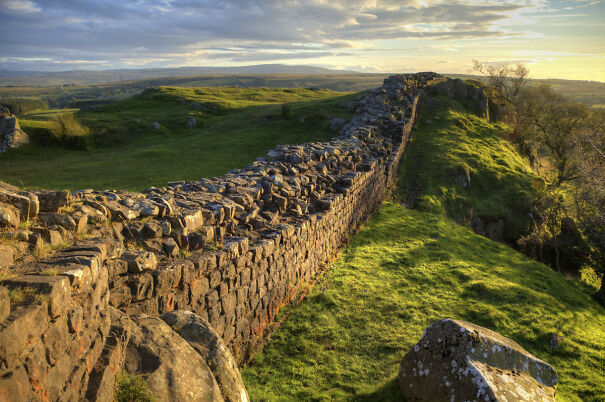
Egyptian Ruler Cleopatra
Greek Philosopher And Mathematician Pythagoras
If all of this looks familiar to you, Bored Panda featured another article where Becca Saladin recreated historical figures into what they would look like today. And if that’s not enough, we also did another article about how this one depixelizing AI tool was supposed to upscale low-res photos, but ended up creating some of the creepiest faces ever.
Oh, and don’t forget to tune in for more reconstructions on Tomasi’s Twitter!
But before you go, why not let us know what you thought about this in the comment section below! Are there any faces that you’d like to see recreated in this fashion?
Greco-Phoenician Philosopher, Mathematician And Astronomer Thales Of Miletus
Roman Emperor Caracalla
Ah, Caracalla, son of the first African Emperor of Rome and very bad hombre....
Roman Emperor Elagabalus
Greco-Phoenician Philosopher Zeno Of Citium
Roman General And Statesman Gnaeus Pompeius Magnus
Greek Statesmen, Orator And General Pericles
An Athenian, Pericles was the head of Athens between the Persian and Peloponnesian Wars. Promoted the arts and literature, generated many of the structures on the Acropolis, including the Parthenon. Fostered Athenian democracy to a massive extent.
Greek Philosopher Parmenides Of Elea
Roman Emperor Septimius Severus
Greek General And Historian Thucydides
Which sources were used for these? A couple are attested as different hair/eye color in classical sources. (Loeb Classical Library, in my case.) More more more history info please!
Which sources were used for these? A couple are attested as different hair/eye color in classical sources. (Loeb Classical Library, in my case.) More more more history info please!

 Dark Mode
Dark Mode 

 No fees, cancel anytime
No fees, cancel anytime 






